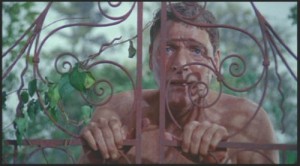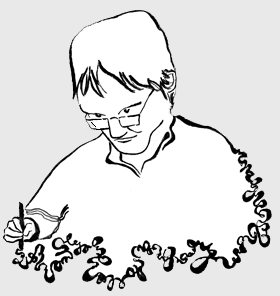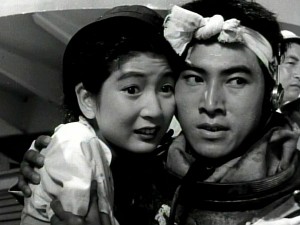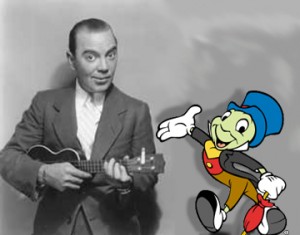George Saunders and his enormous, throbbing heart: a homily

Is George Saunders the most radical fiction writer writing in the mainstream today? Or to put it a possibly better way, is Saunders the most mainstream of today’s radical fiction writers? I don’t mean “radical” in terms of style or form–though Saunders has certainly done his share of innovating–but I invoke the term rather in its classic political connotation. I’ve read most of Saunders’s books, and worked with him when I edited Come Back, Donald Barthelme, but something clicked for me yesterday when I read “Al Roosten,” his new story in the current issue of The New Yorker, and after the jump I’m going to talk about it for about 3000 words, and at some point there will be some spoilers, and it’s not really a “spoiler alert” kind of story, but anyway maybe you want to read the story before you read this.
Magic Helicopter Press Seeks Pilots
 I posted this at the NOÖ blog, but wanted to post here as well.
I posted this at the NOÖ blog, but wanted to post here as well.
Mike and I will have a remote control mini-helicopter at AWP. We will raffle this helicopter off to a lucky AWP-goer. If you’d like to enter your name in the raffle, come by our table (we’ll be sharing with Publishing Genius Press and No Colony), donate some money or buy one of our Magic Helicopter Press chapbooks, and we’ll enter you in the drawing.
In the meantime, we’ll be flying the helicopter around the bookfair, demonstrating our skillz, etc.
Here is a video of the helicopter doing what helicopters do. When you watch the video, imagine lots of authors in that room, sweating and being scared; that is what AWP will be like:
Of course, if Black Warrior Review hands out those fly-swatters they had in Atlanta, then we might be in trouble.
Cheever, in his boxer shorts, convinces me to continue writing short stories.

From the essay “Why I Write Short Stories,” which is collected in the Library of America’s upcoming John Cheever: Collected Stories and Other Writings:
To publish a definitive collection of short stories in one’s late 60s seems to me, as an American writer, a traditional and a dignified occasion, eclipsed in no way by the fact that a great many of the stories in my current collection were written in my underwear.
Another selection from the essay:
A collection of short stories appears like a lemon in the current fiction list, which is indeed a garden of love, erotic horseplay and lewd and ancient family history; but so long as we are possessed by experience that is distinguished by its intensity and its episodic nature, we will have the short story in our literature, and without a literature we will, of course, perish.
May you be correct, Cheever. The rest of this very short essay can be found here.
Friggin Winter
Here are two things I like a lot about FRiGG, which is edited by Ellen Parker:
1) It always looks amazingly ornate. Each issue flings these full color graphics at you for every author’s page. I think this is a smart way to be an online magazine in a different way than we normally imagine. Normally we think online lends itself to streamlined, simple, a few solid colors. Sure, that makes sense. But FRiGG’s approach also makes sense because you couldn’t do this lavish kind of stuff in print; it would be too expensive, right? Yes. And then the paintings are smart enough to recede into the background for the text, which is just a very simple black on white. I feel like there is a curator’s sense of individual-by-individual care that goes into presenting all the authors, and that’s great.
2) FRiGG seems aware that people don’t usually want to read 2000+ word stories on the Web, but they publish some anyway, and usually the ones they publish seem smart in their length: broken up cleverly or chasing you with enough line-by-line momentum that you forget the idea of eye strain and read the whole thing. I think this is terrific editorial shrewdness.
All of which is to introduce FRiGG’s new issue, which features stories and poems from: Joshua Ben-Noah Carlson, Louie Crew, Barry Graham, Crystal J. Hoffman, Tiff Holland, Paul Hostovsky, Dennis Mahagin, Ravi Mangla, Mary Miller, Suzanne Ondrus, Jennifer Pieroni, and Katy Whittingham. Peek it now.
The Life-Affirmier side of Rant

the gooey, somewhat sexual insides of this grapefruit are like the gooey, somewhat sexual insides of all our hearts. Photo (c) Julia Cohen.
Regular readers of this blog know that Julia Cohen is a frequent target of my admiration, but she gets special attention today for this awesome blog post, which starts off with portents of a not-good-news confession, then quickly becomes an apocalyptic screed, and then somehow finds itself soaring into an affirmation of why we all participate in the conversation of Arts & Letter, as well as a sort of declaration of her personal poetics and an expression of gratitude and thanks “to everyone who works in a creative medium.” Then to really round things out, there are two pictures of a bed designed to look like a cheeseburger. Anyway, you should take a minute and now and go read the whole post, which packs a lot of heart into a not-a-whole-lot of space, but here’s my favorite part:
Reading experimental poetry, listening to music, seeing a film or an art show, or reading theory that puts something in this world that is beautiful, constructive, advances dialog and new avenues of understanding- these are the moments that make me feel we, as humans, can provide something positive that would not exist on this planet without us. That’s the glow. For poetry, I’m intrigued by work that dismantles and then plays with the un-gendered “I,” that explores new forms of address, reckoning, and evinces culpability for the human and non-human other. Through new communication via what some may call anti-narrative, the links between fragmented image, quiet but firm declarations, and the transitive property of memory in complimenting and translating subjective experience to an other. Works that are about inclusive resistance and inclusive revolt, that emanate a destabilizing yet regenerative force, that may on the surface look surreal though are anything but.
I think it’s fascinating that one of the most talented, compelling and elusive poets I know (or know of) should somehow come to produce some of her most nakedly earnest and straightforward utterances in the course of articulating the value of art that fragments, challenges, “dismantles” or otherwise subverts conventional notions of narrative and meaning. This paradox seems, to me at least, to be exactly the point.
*****SPECIAL JULIA COHEN BONUS SECTION*******
Remember last week, when I liked Cohen’s chapbook, The History of a Lake Never Drowns ?
Three of her poems in diode v1n3
Cohen co-edits Saltgrass, which has a new issue (#3) out, which I’ll probably blog about at some point in the future, probably about two days after whenever she gives me a copy of it.

Cohen at the KGB Bar, with Paige Taggart (left), 10/08. Photo (c) Star Black.
— (part 1): THE MORE I CAN FEEL I AM FALLING OUT OF BABIES THE BETTER I BE ABOUT THE MOUTH

When you are ready to sit at the desk, sit at the desk.
When you aren’t ready, still have a desk too.
I like a lot of little food and walkings.
It’s good to have a dog to fuck you up.
If you ever start to figure out what you are saying, get up and sprint straight away until you hit a wall and there will be someone there telling you what to do, which might be GET THE FUCK OUT OF HERE.
Are you ready stop being so entertainment? That’s the most fun.
It’s never too late to get a law degree.
Have a mother bring you half a sandwich that she didn’t eat at lunch with those other women.
Try not sleeping when you are are asleep.
Try sleeping when you are not sleep and doing it the best you ever did.
Sometimes don’t masturbate for a long time and then do it first thing in the morning.
Shampoo is still soap.
When someone asks you what you are doing in that room for so long, say ‘titties’ or else take karate for enough years until you can gut punch them in that just one spot.
Say a lot of things in a very short time sometimes.
Say not much at all for really long.
Say things you don’t mean and mean them.
Mean mean things say and don’t you them.
Make use of that time when other people are just driving but don’t realize that you are making use of it.
When the guy approaches you at Wendy’s with that look in his eye, show him where it hurts because of what you did too much.
Be this guy more often:
Sometimes when you are reading something you really like in the bathtub, put it down right where you are really liking and get out of the bath and go all wet to the desk and finish writing what you were reading, but don’t do it like that, or do it later. Or do it before you read the next thing you really like at all.
Think about submissions less and publications less and just forget you are ever going to show anyone.
Try not to show anyone.
Turn off the gmail chat.
At your desk be the worst person ever born.
Whenever someone says, ‘teach me something,’ say ‘hi.’
Vicarious MFA: Participation Grade
 We always get really great guest speakers here and I always wish I had a good question at the end, but I never do.
We always get really great guest speakers here and I always wish I had a good question at the end, but I never do.
John D’Agata is doing a talk about something next week, and I know you kids love D’agata, so let’s come up with something good. Post your inquiries in the comments, and assuming that a good question is generated and I get the chance to ask it, I will post his answer here also.
Juggernaughtica

Godjira was a bad motherfucker. He was a massive green mutant dinosaur raining down death and destruction because it was Tuesday in Tokyo, and Godjira recognized it was a banal Tuesday and had nothing better to do than melt tiny Japanese flesh sacks with his radioactive fire breath.
The city would get fucked up. High rise buildings in ruin. Virgins slaughtered. Expensive military vehicles raped.
The big green guy wiped his ass with Tokyo. Gratuitous aggression at its pinnacle.
There was always a downfall to his reign.
In a few of the movies an attractive young girl with some moxie devises a way to spank his dick and send him pouting back to his ocean floor studio apartment.
The battle for Tokyo is here and now(once again). Godjira has resurfaced. I am afraid. I need to be held by a comely female or a frail man with soft skin until the battle is over.
Please pretty young girl defeat Godjira and save us all.

Enough with all this literature. Let’s have some ukulele music!

Here’s something else. Embedding of this youtube video has been disabled, so please follow this link. And then come back.
That was Cliff Edwards or “Ukulele Ike,” known to many of us as the voice of Disney’s Jiminy Cricket. As you can see, in addition to his career as a Vaudevillian, Edwards was also a World War I interrogator of German prisoners. In the video, we see him (and a fellow Imperialist American torturer slash tap dancer) engaged in some Abu Ghraib-style tactics, playing music that the subject clearly finds unbearable.
No doubt she moments later spilled all sorts of beans about the Kaiser’s plans, eh? Possibly she revealed the location of Wilhelm II mustache wax factory.
Literary tie-in: Cliff Edwards was born in Hannibal, Missouri. Also from Hannibal? Mark Twain, author of The Adventures of Huckleberry Finn, which is the GREAT AMERICAN NOVEL. Discuss.


